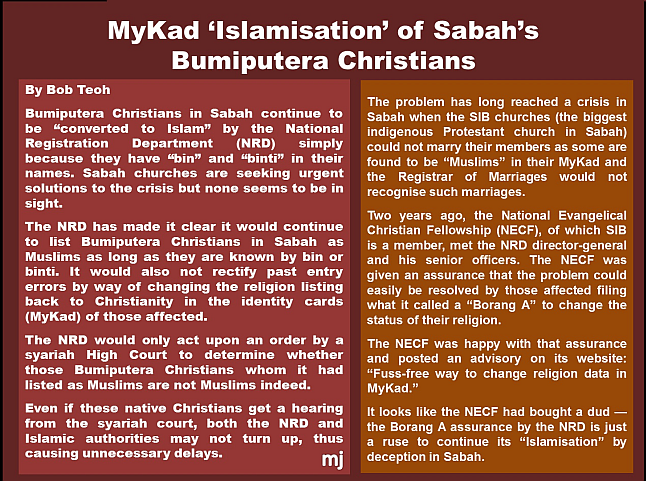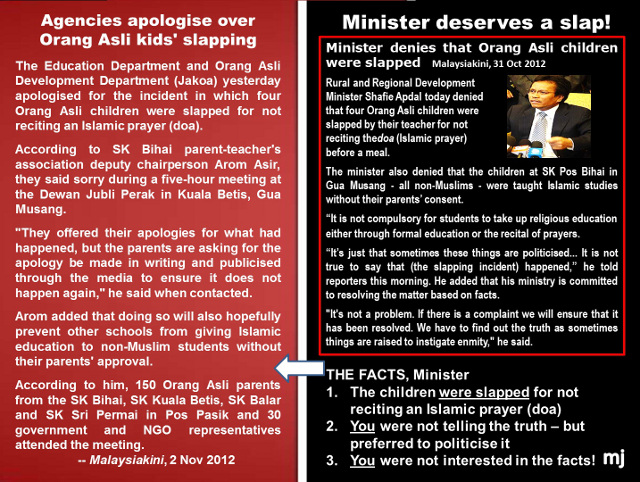Based on information from the Orang Asli and Orang Asli activists familiar with the issues facing the education of Orang Asli children, it appears that the tragic incident of the 7 Temiar schoolchildren who went missing on 23 August 2015 has its roots in the sad situation some Orang Asli schools and hostels (asramas) are in, and in the caliber and character of the people assigned to run them.
The school in Pos Tohoi in Gua Musang, where the 7 children were being schooled and boarded, was in a lamentable condition, sometimes with no water in the hostels, forcing the children to use the river. Broken and unmaintained fences allow easy access out the hostel grounds.
No Orang Asli teachers
There was no headmaster assigned to the school at the time of the incident. A new headmaster was posted there just the day before the visit of the Deputy Prime Minister, Datuk Seri Zahid Hamidi on 28 September. The eight teachers are all male and none of them are Orang Asli. There are four wardens, only one of whom is a female. But the majority of the students are female.
School enrolment down
The school enrolment as at 23 August 2015 was 170 students, with 70 students staying in the hostel. Today, after the incident, there are 103 students enrolled, with only 12 staying in the hostel. The drastic drop on the enrolment and number of hostelites says a lot about the trust the Orang Asli parents have in the ability of the school to provide their children with a safe and conducive environment.
Continue reading “Post SK Tohoi tragedy – the need for revamp of the education programe for Orang Asli students”


